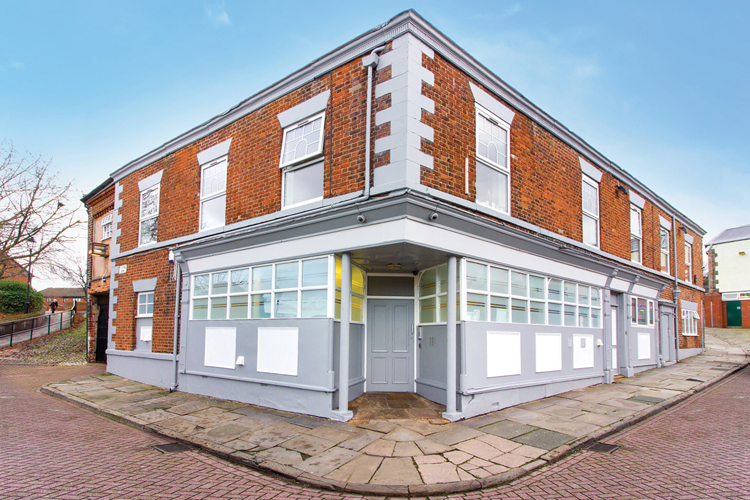
Written by:

Medically Reviewed by:
Last Updated:
March 3rd, 2025
Rehab
From 2021 through 2022, the UK witnessed a significant number of individuals, exceeding 133,000, seeking treatment for alcohol or drug-related challenges. Among these individuals, nearly half, accounting for 49%, completed their treatment, equipping themselves with the essential skills for maintaining a life free from addiction.
At Oasis Runcorn, our devoted and empathetic team is committed to delivering personalised care that integrates evidence-based therapies with holistic approaches seamlessly. With our steadfast support, you can discover renewed hope, experience profound healing, and summon the inner strength needed to reclaim your life. As a guiding light, Oasis Runcorn rehab paves the way for numerous individuals, leading them towards enduring sobriety and a more luminous future.
What is rehab?
Rehab programmes are vital for battling substance abuse or harmful behaviours. Rehab offers a transformative opportunity to regain control and address the root causes of their issues. By addressing addiction’s physical, psychological and social aspects, rehab empowers you to break free from destructive patterns and find fulfilment.
Alcohol Rehab
Alcohol rehab is a structured program designed to help individuals struggling with alcohol use disorder. These programs typically include medical detoxification, counselling, and support groups to address the psychological and physical aspects of addiction. Participants learn coping strategies, gain support from peers, and develop skills to maintain sobriety, ultimately aiming for long-term recovery and improved quality of life.
Drug Rehab
Drug rehab focuses on treating individuals battling substance use disorders, providing a comprehensive approach to recovery. Programs often start with medical detox to manage withdrawal symptoms, followed by therapy and counselling to address the underlying issues of addiction. Support groups and educational resources empower individuals to develop healthy coping strategies, promoting long-term sobriety and a healthier lifestyle.
In what setting is rehab carried out?
Addiction treatment can be conducted in a range of settings. Two general settings are inpatient and outpatient rehab, chosen based on a person’s specific circumstances and requirements.
Outpatient rehab
Outpatient rehab allows individuals to receive treatment while living at home and maintaining their daily routines. It offers flexibility in scheduling, a range of treatment modalities and encourages reliance on existing support networks for ongoing recovery and accountability.
Inpatient rehab
Inpatient rehab involves residing in a specialised facility for comprehensive and intensive treatment. It offers a highly structured environment, 24/7 supervision from a team of trained medical professionals.
At residential rehab, the focus is on addressing immediate and complex addiction issues through detoxification and rehab therapies.
Why should you consider rehab at Oasis Runcorn?
Both inpatient and outpatient rehab programmes can offer effective treatment options, but inpatient treatment may be more appropriate for certain individuals or situations. At Oasis Runcorn, we provide an inpatient, residential rehab option for our clients. We believe that this type of setting offers the following benefits:
A structured environment
Oasis Runcorn provides a structured and supportive environment that helps individuals focus on their recovery. This includes a safe setting, access to medical and therapeutic assistance and a clear plan of action for the recovery process. The structured environment helps you develop the necessary skills to maintain sobriety and lead a healthier life.
A safe environment to detox
Detoxification is a crucial phase of rehab, and at Oasis Runcorn, we offer a safe and monitored environment for detox. Medical professionals, including doctors and nurses, provide support throughout the detox process, ensuring the safety and well-being of the patients.
Access to resources
Residential rehab centres like Oasis Runcorn provide access to various resources that aid individuals in their recovery journey. These resources can include education on healthy lifestyle skills such as nutrition, exercise and effective communication. Additionally, you will have access to peer groups, aftercare programmes, 12-step groups and other support networks that play a vital role in the recovery process.
A supportive community
Oasis Runcorn fosters a supportive community of staff members and fellow patients dedicated to recovery. Many of these peers have gone through similar experiences, providing an invaluable source of support and understanding.
What do we treat at Oasis Runcorn?
At Oasis Runcorn, we offer rehab in the form of drug rehab and alcohol rehab. Both of these types of rehab follow two different programmes;
12-Step programme
The 12-step programme is a widely recognised approach to recovery from substance abuse and has been adapted for various types of drugs and behaviours. At Oasis Runcorn, this programme follows the principles of the original 12 steps and incorporates them into the treatment process.
Strengths model programme
The strengths model programme, offered at Oasis Runcorn, takes a different approach to recovery. This model focuses on identifying and building upon your personal strengths and resources.
What therapies are commonly used in rehab?
At Oasis Runcorn, various therapies are commonly used to help you on your journey to recovery. Here are some of the main ones you’ll likely come across at our facility;
- Dialectical behavioural therapy (DBT): This therapy helps you recognise and change negative thoughts and behaviours that contribute to your troubles. The therapy focuses on developing healthier coping skills to combat the addiction.
- Group therapy: Group therapy is a supportive setting where you’ll join others who understand what you’re going through. It’s a chance to share experiences and gain insights from fellow participants. The therapy aims to act as a built-in support system.
- Individual therapy: Individual therapy sessions provide a one-on-one space where you can work closely with a therapist. They’ll help you delve into underlying mental health issues with the aim of addressing the root cause of addiction.
- Family therapy: Family therapy involves bringing your loved ones into the treatment process. It focuses on how your actions have affected the entire family. It’s about rebuilding and strengthening those vital connections.
What are the health benefits of completing rehab?
Completing rehab can bring many health benefits that extend far beyond the confines of addiction. By undergoing the transformative rehabilitation journey, you can experience a positive shift in your physical and mental well-being.
- Sobriety: Of course, the main aim of rehab is sobriety. Whilst we cannot guarantee sobriety for the rest of your life, we can offer to teach you the skills you need to combat your issues in the best way possible. Completing rehab significantly increases the chances of you maintaining sobriety.
- Physical health improvement: Rehab allows the body to heal from drug abuse; this then sets off an almost chain-like reaction of physical health benefits, including cardiovascular improvements, better sleep and increased energy levels.
- Mental and emotional well-being: Completing rehab addresses underlying mental health issues, improving mental and emotional well-being.
- Improved relationships: Rehab helps repair damaged relationships that may have occurred during your drug abuse. It also teaches you how to communicate healthily.
- Enhanced coping mechanisms: Rehab equips you with new coping strategies to manage stress, cravings and triggers in order to prevent relapse.
- Support network: Rehab provides access to a supportive community, fostering ongoing encouragement, accountability and a sense of belonging.
What happens after rehab?
After completing rehab, it is important to understand that the journey to recovery is not yet over. While rehab provides a strong foundation for a substance-free life, the real work of maintaining sobriety begins outside the structured treatment environment. It requires continued commitment and effort to ensure long-term success.
By recognising the need for ongoing aftercare support, practising the techniques learned in rehab and staying committed to a sober lifestyle, you can increase your chances of long-term success.
Remember, recovery is a lifelong process, and each day presents an opportunity to reaffirm your commitment to a healthier, happier life.
Squashing the rehab myths
Rehabilitation centres often find themselves surrounded by rumours and speculation, as people naturally become curious about what truly happens within their closed doors. The personal nature of the rehab experience, coupled with limited public disclosure by attendees, only adds fuel to the rumour fire. Well, we’re here to squash those rumours and give you an insight into what life is really like in rehab.
Here are some common rumours you may have heard before:
“Rehab is only for drug addicts.”
While rehab is commonly associated with drug addiction, it also addresses alcohol addiction, gambling addiction and other forms of problematic behaviours. Rehab programmes can be tailored to specific addictions and co-occurring disorders as long as the rehab centre provides treatment for them.
“Only celebrities or the wealthy can afford rehab.”
While some luxury rehab centres cater to celebrities and high-profile individuals, there are various affordable options for inpatient rehab, such as Oasis Runcorn, as well as public or nonprofit organisations and insurance/NHS coverage.
“Rehab is only for severe addicts.”
One common misconception is that rehab is solely for people with severe addiction issues. In reality, rehab is suitable for people at various stages of addiction, from mild to severe, as it provides support, education and tools for recovery.
“Rehab is easy.”
Rehab is sometimes underplayed or glossed over in media portrayals. Characters may effortlessly enter rehab and seemingly emerge cured in a short period. The challenges, setbacks and ongoing work required for successful recovery are often omitted or downplayed. This can give viewers a false sense of how rehab operates and cause them to underestimate the commitment and effort needed to overcome addiction.
“Rehab is like a prison.”
In rehab, individuals are not stripped of their freedom or treated as criminals. Instead, they are treated with empathy, respect and understanding. The goal is to provide a safe and nurturing space where you can address your addiction and explore underlying issues while developing essential life skills for sustained recovery.
You only need to listen to our former clients to understand how far from the truth the statement is;
Carl:
“The food was lovely, and your relationships with other people and the connections you make are very important.”
Daniel:
“the place was so comfortable. Everyone was lovely and amazing. Absolutely shocked by the level of love and support.”
What’s next?
If you or a loved one is struggling with addiction, now is the time to take action and seek the help you deserve. Don’t let misconceptions or fears hold you back. Embrace the opportunity for a brighter future by attending rehab.
Our team of experts is ready to help you with taking the first steps toward recovery. Contact us today for more details.
Frequently Asked Questions








